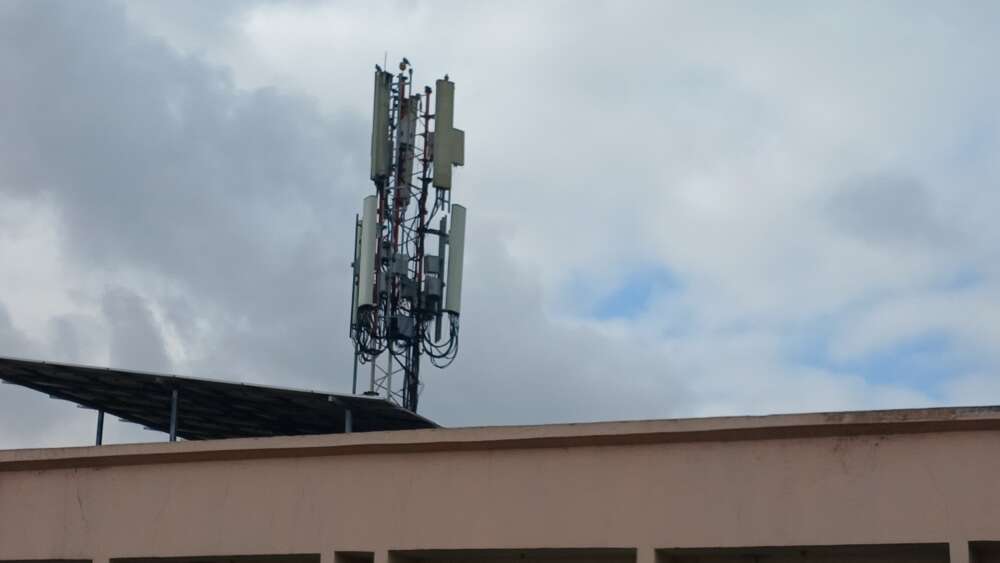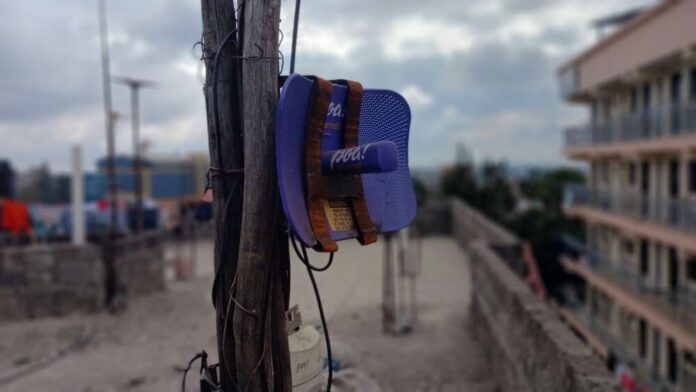By Mark Antony Ochieng, DevReporter, Nairobi County

Key Highlights
-
-
- Kenya’s Internet penetration is at 40.8%
- Residents decry high installation and monthly costs.
- SDG Goal No. 9 targets investing in ICT to enhance access to quality education and unlocking of resources and skills.
-
The last decade has seen an increase in Internet connectivity in Kenya, with urban residential areas benefiting the most. According to digital data reportal, Digital 2024 as of January 2024, Kenya’s Internet penetration rate was 40.8%, This was a 2% increase from the previous year, When the rate was at 32.7%.
A Focus on Internet Access in Allsopps
Today when you walk across the streets of Allsopps, one thing that catches the eye is the huge number of Wi-Fi receivers on buildings. You can’t walk past a whole street without seeing at least 10 receivers. This is quite remarkable given that 5 years ago, this was not the case.
Morris Nduati, is a testament to this new normal that the youth has overwhelmingly embraced. He has installed a 10Mbps Wi-Fi Subscription in his house
“I have Internet connection from a service provider operating in the area. The package is 10MBPS and its serves me, it is less expensive and I am able to access information. So, If I’m given an option between choosing cellular data and Wi-Fi, I’d go for Wi-Fi, it tends to be much cheaper. Its is one payment usable for the rest of the month.” He stated
Sharon also a resident of the area decried tough economic situations in the country as a major hindrance to her access.
“Actually, I had the Wi-Fi Internet in my house, but I had to do away with it cause of the tough economic times, but now I am Using data which is very expensive, but reliable when needed,” Sharon said.

Internet Service Providers in Kenya
There has been a rise in Internet service providers in the recent years leading to a pool of choices for Kenyans. Some of these providers that have been in the Market for some time include, Safaricom Home Fibre, Jamii Telecommunications Faiba and Zuku Home Internet.
While there are investors in this sector, many of them offer Internet at rates that are not affordable for every Kenyan.
Benefits of WIFI access.
Finance bill 2024 protests
Anti-government protests that took place in late June 2024, highlighted the extent of Internet access and connection, as most of the planning and coordination of the protests took place online. This was in itself a reflection of how connected the youth in Kenya are.
Learning and work resources
Another major benefit is the availability or data & resources. This comes in handy for educational purposes especially in university and at work.
Cost-effective.
The nature of Wi Fi connection makes it cost effective compared to cellular data. It is unlimited for the duration of the subscription.
Government Policy and Agenda on Internet Access
Kenya Power is set to undertake the connection of fibre optic cables to enhance Internet connectivity in Kenya. President Ruto affirmed this during his recent presidential town hall meeting with university students.
The project will run concurrently with the connection of power to rural areas under the Last Mile Connectivity project.
Kenyan Constitution & Government Vision 2030
The Kenyan Constitution highlights the right to access information and communication, which is bolstered by Internet connectivity. Article 33 guarantees freedom of expression and the right to seek information, all of which support Internet access as a fundamental right.
Governments Vision 2030 National Communications and Technology (ICT)policy aims to provide Internet access in Kenya. The policy aims to expand Fibre Optic Networks, establish wide area networks and roll out 4G Networks.
Sustainable Development Goal 9
Equally,Sustainable development Goal no.9 emphasises the importance of building resilient infrastructure and promoting inclusive, sustainable industrialization and innovation. This inherently includes improving Internet connectivity.
The rise of digital communication technology increases the demand for Internet connectivity. This makes it crucial for the government to collaborate with industry leaders to bridge the gap in Internet availability.






